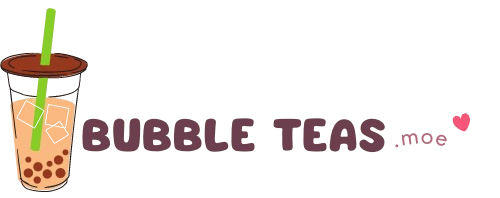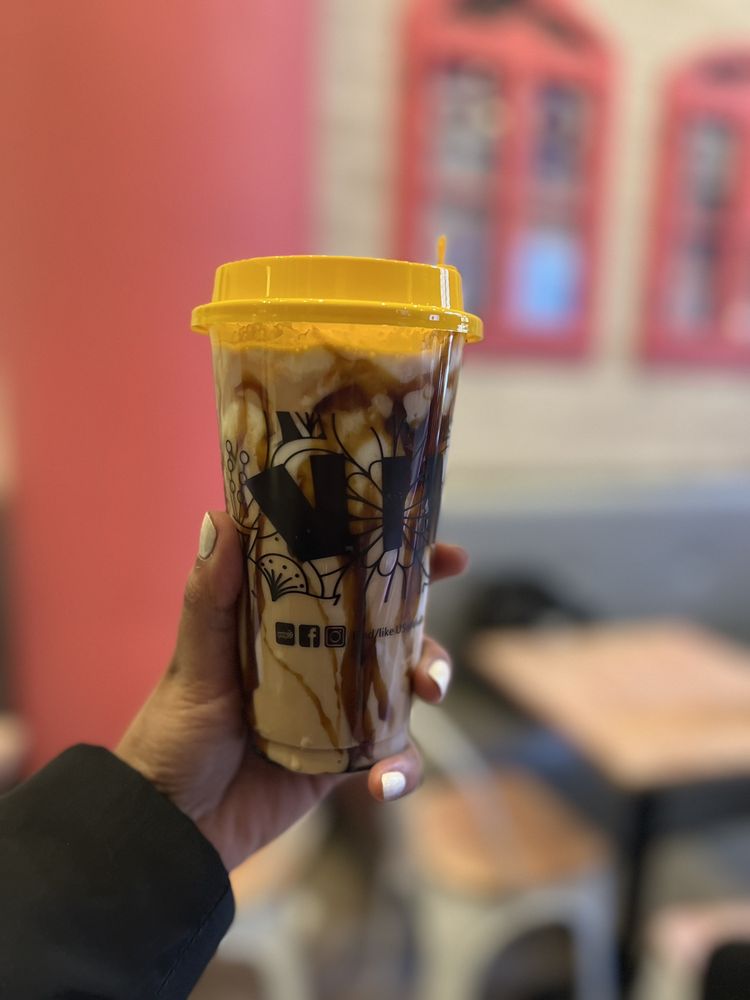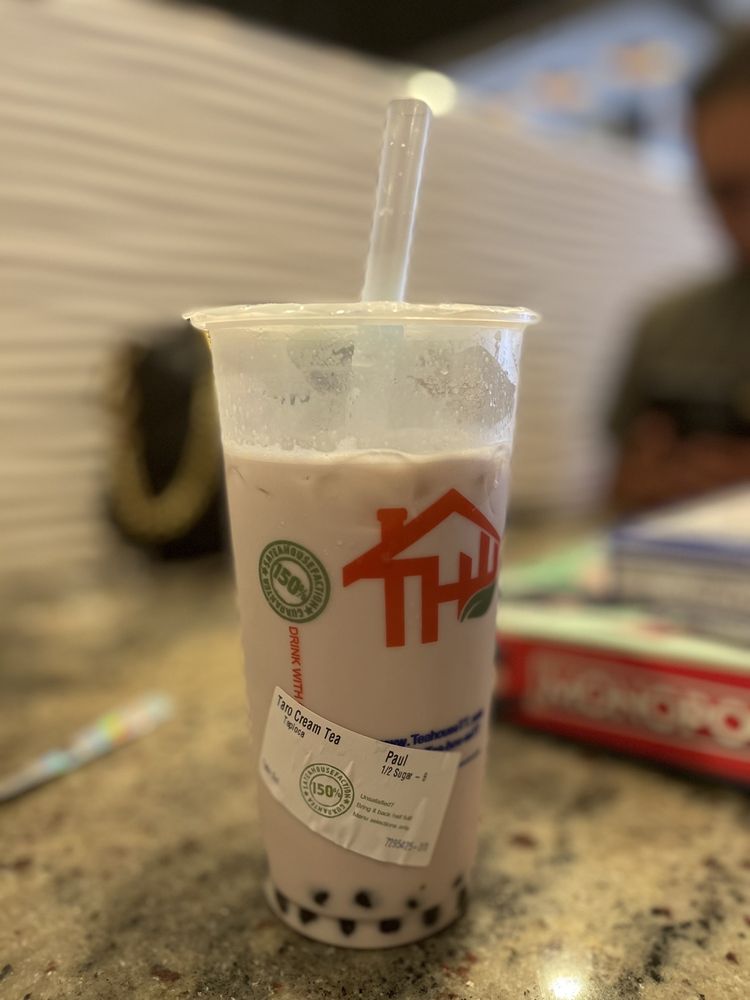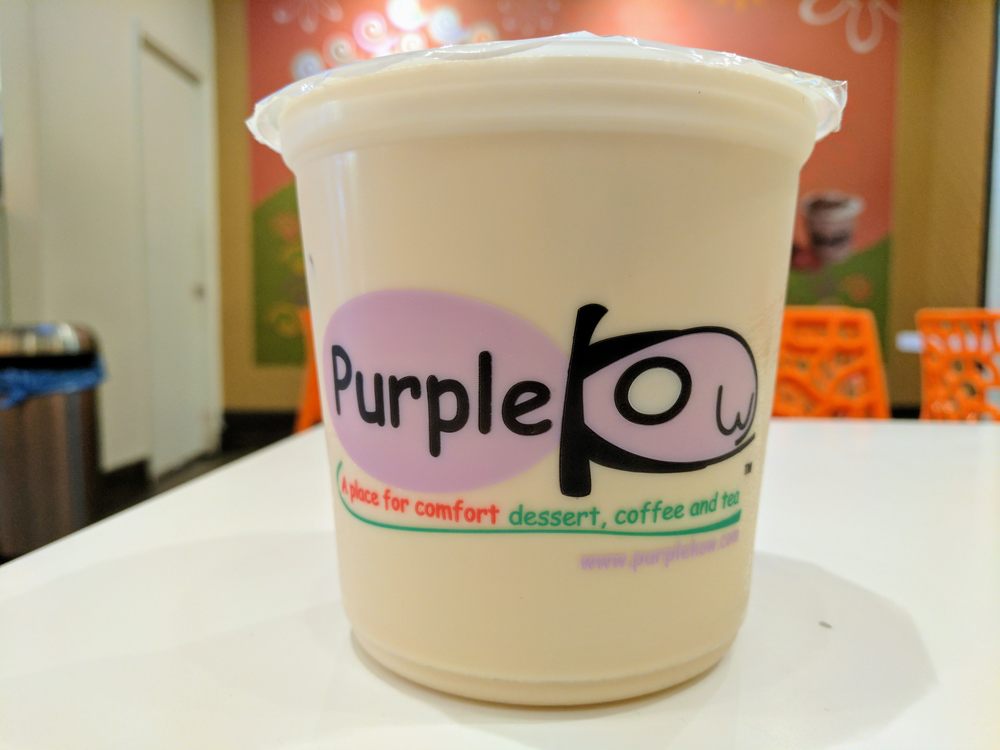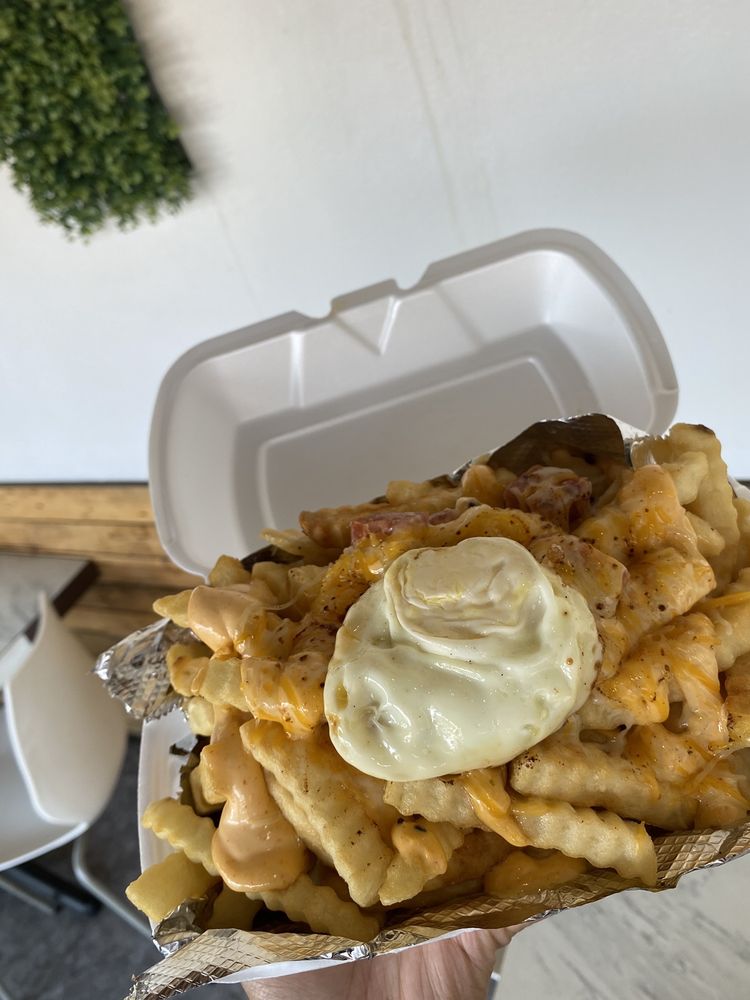Can Dogs Have Boba?
As a responsible dog owner, it’s important to be mindful of what we feed our furry friends. Boba, also known as bubble tea, has gained popularity in recent years, and you may now be wondering whether it’s safe for dogs to indulge in this delicious drink.
There are a few factors to consider when determining whether dogs can have boba. Let’s break it down:
The Ingredients
Boba typically contains ingredients such as tapioca pearls, sweeteners, and milk tea. While tapioca itself is not toxic to dogs, it can cause digestive issues if consumed in large amounts. The sweeteners used in boba, such as sugar or honey, can also cause diarrhea and weight gain in dogs.
Lactose Intolerance
Many dogs are lactose intolerant, meaning they lack the enzyme necessary to break down lactose found in milk and dairy products. Milk tea, which is commonly used in boba, contains lactose. Feeding your lactose-intolerant dog boba could result in discomfort and gastrointestinal upset.
Consult Your Veterinarian
Before sharing your boba with your dog, it’s always best to consult with your veterinarian. They will be able to assess your dog’s individual health needs and advise you on whether it’s safe to give your dog boba or any other human food. Remember, your veterinarian is the best source of information when it comes to your dog’s diet.
Stick to Dog-Friendly Treats
While boba may be a refreshing treat for us, it’s important to remember that dogs have different nutritional needs. Instead of sharing your boba with your furry friend, opt for dog-friendly treats or even make homemade frozen treats using dog-safe ingredients. There are plenty of options available that are specifically formulated for dogs to enjoy.
It’s generally best to avoid giving boba to your furry friend. The ingredients used and the potential digestive issues it may cause make it a less-than-ideal choice for dogs. Stick to a balanced diet of high-quality dog food and consult with your veterinarian for guidance on what treats are safe and suitable for your four-legged companion.
Risks Ingredients of Boba Inside of Bubble Tea?
Boba, also known as bubble tea, has gained popularity in recent years as a trendy and refreshing beverage. It consists of a drink base, usually milk tea, combined with chewy tapioca balls. But can dogs have boba? Let’s take a closer look.
Boba Ingredients
The main ingredients in boba are milk tea and tapioca balls. Milk tea is typically made from black tea, milk, and sweeteners like sugar or honey. Tapioca balls, made from the starch extracted from cassava root, provide the chewy texture that is characteristic of boba.
Potential Risks
While some components of boba may be safe for dogs in moderation, there are a few factors to consider. Firstly, the sweeteners used in boba, such as sugar or honey, can cause diarrhea or weight gain in dogs if consumed in large amounts. Additionally, milk, which is often present in milk tea, contains lactose , which many dogs have difficulty digesting. This can lead to stomach upset in some dogs.
Consulting a Veterinarian
Before giving your dog boba or any other human food, it’s crucial to consult with a veterinarian. They can provide personalized advice based on your dog’s specific needs and any underlying health conditions. They will be able to determine whether it is safe for your dog to consume boba and offer alternatives if needed.
Sticking to Dog-Friendly Treats
While it may be tempting to share your boba with your furry friend, it’s generally recommended to stick to dog-friendly treats and a balanced diet of high-quality dog food. This ensures that your dog receives all the necessary nutrients without any potential risks associated with human foods.
While a small taste of boba may not cause harm to dogs, it’s best to err on the side of caution and avoid giving them this popular beverage. Always prioritize your dog’s health and consult with a veterinarian before introducing any new foods into their diet.
Are The Ingredients in Boba Safe For Pets?
When it comes to feeding our furry friends, it’s always important to be cautious and knowledgeable about what is safe for them to consume. This brings us to the question – Can dogs have boba? Today, let’s take a closer look at the ingredients in boba to see if it’s a suitable treat for our canine companions.
Boba, also known as bubble tea, typically consists of three main components – tapioca pearls, sweetener, and milk tea. Let’s break it down and see how these ingredients might affect our furry friends.
Tapioca Pearls : Tapioca pearls are made from cassava, a starchy root vegetable. While tapioca pearls in small amounts may not be harmful to dogs, it’s important to note that they are high in carbohydrates and can lead to an upset stomach or diarrhea if consumed in large quantities.
Sweetener : Boba often contains sweeteners like sugar or honey. Dogs have a different tolerance for sweetness compared to humans, so it’s best to avoid giving them sugary treats. Consumption of excessive sweeteners can lead to weight gain, dental issues, and even diabetes in dogs.
Milk Tea : Some boba drinks are made with milk or cream. It’s important to remember that the majority of dogs are lactose intolerant, and consuming large amounts of milk can cause digestive discomfort, gas, and diarrhea. It’s always safer to stick to lactose-free options when considering treats for your furry friend.
Before giving your dog any human food, including boba, it’s crucial to consult with a veterinarian. They can provide tailored advice based on your dog’s specific dietary needs, health condition, and any allergies they may have.
While boba can seem tempting as a trendy and refreshing beverage, it’s important to prioritize your dog’s well-being. Stick to dog-friendly treats and a balanced diet of high-quality dog food to ensure they receive the essential nutrients they need.
Remember, when it comes to our furry friends, their health and safety should always be our top priority.
Are Boba Pearls Safe for Dogs?
As dog owners, we always want to treat our furry friends to something special. But when it comes to sharing our favorite foods with them, it’s important to consider their safety and well-being. Let’s take a closer look at the ingredients commonly found in boba and whether they are safe for our canine companions to consume.
Tapioca Pearls: Tapioca pearls are the signature component of boba drinks. Made from cassava root, they are usually boiled until they become chewy. While plain tapioca pearls themselves are not toxic to dogs, they can pose a choking hazard due to their size and texture. It’s best to avoid giving dogs tapioca pearls or any other small, hard objects that they can swallow.
Sweeteners: Many boba drinks are sweetened with various sugars and syrups. Excessive sugar consumption can lead to weight gain, dental issues, and even diabetes in dogs. Additionally, some artificial sweeteners like xylitol can be highly toxic to dogs. It’s always safer to steer clear of sweetened boba or any treats with added sugars.
Milk Tea: Milk tea is another common ingredient in boba drinks. Dogs, particularly adult ones, are generally lactose intolerant. Feeding them milk products can lead to digestive upset, such as diarrhea and gas. It’s best to avoid giving dogs milk tea or any dairy-based beverages.
While small amounts of boba ingredients may not immediately harm dogs, it’s essential to prioritize their overall health by sticking to their regular diet of high-quality dog food. Treats specifically made for dogs are a safer option to reward them.
If you’re still unsure about whether dogs can have boba or any human food, consult with a veterinarian. They can provide you with professional advice tailored to your dog’s specific needs.
Remember, dogs rely on us to make the best decisions for their well-being. Prioritizing their health and safety means opting for dog-friendly treats and a balanced diet of high-quality dog food.
The Risks of Feeding Boba to Dogs. What Happens When Dogs Eat Tapioca?
As an expert blogger, I’ve researched extensively about whether dogs can safely consume boba, also known as bubble tea. While dogs love to eat what we eat, it’s important to understand the potential risks involved before sharing this popular beverage with our furry friends.
Tapioca Pearls and Cassava
One of the main ingredients in boba is tapioca pearls, which are made from cassava, a starchy root vegetable. While cassava itself is safe for dogs in moderate amounts, the tapioca pearls can pose a choking hazard or cause digestive issues due to their size and texture.
Sweeteners and Weight Gain
Another concern with boba is the addition of sweeteners, such as simple syrup or flavored syrups. These sweeteners can be high in sugar and calories, leading to potential weight gain for our canine companions. Moreover, excessive sugar consumption may also contribute to dental problems and other health issues in dogs.
Milk Tea and Lactose
Many boba drinks include milk tea, which contains lactose, a sugar found in milk. While some dogs can tolerate small amounts of lactose, others may have difficulty digesting it. Consuming large amounts of lactose can result in diarrhea and digestive discomfort for dogs.
Consulting with a Veterinarian
Before offering your dog a taste of boba or any other human food, it’s crucial to consult with a veterinarian. They can provide personalized guidance based on your dog’s specific dietary needs and any existing health conditions. Remember, your veterinarian is the best resource for ensuring your dog’s overall health and safety.
While it may be tempting to share the boba experience with our canine companions, it’s essential to prioritize their well-being. Opting for dog-friendly treats and a balanced diet of high-quality dog food designed for their nutritional needs is the best way to keep our four-legged friends happy and healthy.
So, can dogs have boba? To keep it simple, it’s best to stick to dog-friendly options and consult with your veterinarian to ensure your dog’s safety and health.
Healthier Alternatives to Boba for Dogs
When it comes to treating our furry friends, it’s important to prioritize their health and well-being. While boba may be a delicious and trendy beverage for humans, it’s important to remember that not all foods are safe for dogs to consume. Although it may be tempting to share your boba with your beloved canine companion, there are potential risks to consider. However, fret not! There are plenty of healthier alternatives that you can offer your furry friend instead.
Here are a few dog-friendly options that you can consider:
1. Frozen Fruit Treats : Instead of boba, why not spoil your pooch with some frozen fruit treats? Many fruits, such as bananas, blueberries, and watermelon, are safe and healthy for dogs to eat. Simply freeze some fruit chunks or puree them into a popsicle mold for a refreshing and nutritious treat.
2. Peanut Butter Kong : A classic favorite among dog owners, a peanut butter-filled Kong toy can keep your pup entertained for hours. Make sure to use all-natural peanut butter without any added sugars or xylitol, as these can be harmful to dogs.
3. Carrot Sticks : Carrots are a low-calorie and crunchy snack that dogs love. They are packed with vitamins and minerals, making them a great alternative to boba. Plus, chewing on carrot sticks can help promote good dental health for your furry friend.
4. Plain Yogurt : While boba contains milk tea, which may not be suitable for dogs due to lactose intolerance, plain yogurt can be a healthy and tasty alternative. It’s important to note that not all dogs can tolerate dairy, so it’s best to consult with your veterinarian before introducing yogurt into their diet.
Remember, when introducing any new food to your dog, it’s essential to do it gradually and in moderation. If you have concerns or questions about other potential alternatives or the specific dietary needs of your canine companion, consult with your veterinarian. They can provide expert advice tailored to your dog’s unique needs.
While boba may not be safe for dogs to consume, there are plenty of healthier alternatives that you can offer your furry friend. Prioritizing your dog’s health and safety is crucial, and by making smart choices and being mindful of what you feed them, you can ensure a happy and healthy life for your beloved pet.
So would my dog be in trouble if they swallow Boba?
It is essential to prioritize the health and safety of our furry friends when it comes to their diet. Feeding dogs boba, or bubble tea, can pose potential risks due to the ingredients commonly found in these beverages. It is crucial to consult with a veterinarian before introducing any human food, including boba, into a dog’s diet.
To ensure a dog’s well-being, it is recommended to stick to dog-friendly treats and a balanced diet of high-quality dog food. There are several healthier alternatives to boba that dog owners can consider, such as frozen fruit treats, peanut butter Kong toys, carrot sticks, and plain yogurt. These options provide a tasty and safe alternative for dogs to enjoy.
When introducing new foods, it is important to do so gradually and in moderation. Consulting with a veterinarian can provide valuable guidance on specific dietary needs for individual dogs. By making smart choices and prioritizing a dog’s health and safety, we can ensure that they lead happy and healthy lives.
Remember, always consult with a veterinarian before making any changes to your dog’s diet and provide them with the care they deserve.
Can I feed boba to my dog?
It is not recommended to feed boba to your dog. The ingredients in boba, such as sugar, caffeine, and milk, can be harmful to dogs and may cause digestive issues, upset stomach, or even toxicity.
What should I do if my dog accidentally consumes boba?
If your dog accidentally consumes boba, it is best to monitor them closely for any signs of distress. If you notice any unusual behavior or symptoms, contact your veterinarian immediately for guidance and assistance.
What are some healthier alternatives to boba for dogs?
There are several healthier alternatives to boba that you can consider for your dog, including frozen fruit treats, peanut butter Kong toys, carrot sticks, and plain yogurt. These options are safer and can provide a delicious and nutritious treat for your furry friend.
Should I consult with a veterinarian before giving boba or any other human food to my dog?
Yes, it is highly recommended to consult with a veterinarian before giving boba or any other human food to your dog. They can provide personalized advice based on your dog’s specific dietary needs and health conditions, ensuring their safety and well-being.
What should be the priority when it comes to my dog’s diet?
The priority when it comes to your dog’s diet should always be their health and safety. Providing them with a balanced and nutritious diet of high-quality dog food is essential for their overall well-being. Avoid giving them foods that are potentially harmful or not suitable for dogs, such as boba or other human treats.
How should I introduce new foods to my dog’s diet?
When introducing new foods to your dog’s diet, it is important to do it gradually and in moderation. Start by offering small amounts of the new food and monitor your dog’s response. If they do not show any adverse reactions, you can slowly increase the amount over time. However, it is best to consult with a veterinarian for specific dietary requirements and recommendations for your dog.

My name’s Chris, an avid Bubble Tea lover, I try my best to provide some of the best information on Bubble Tea along with bubble tea reviews, boba recipes and boba guides to make your own bubble tea!
